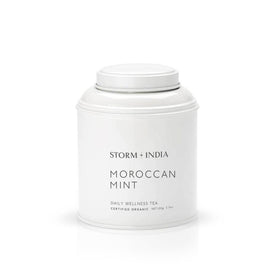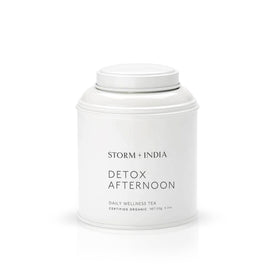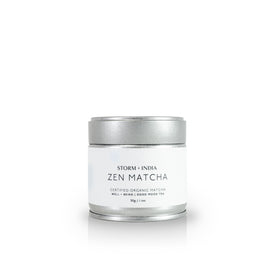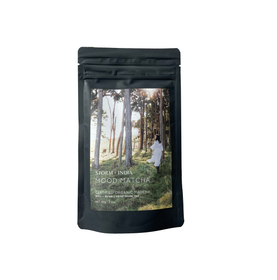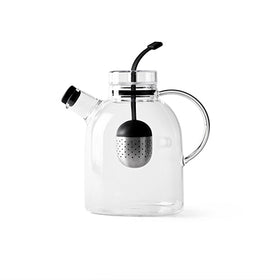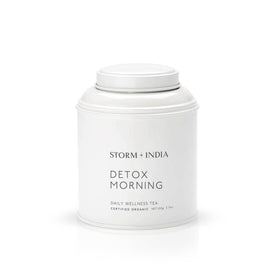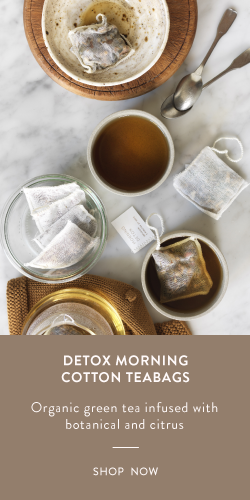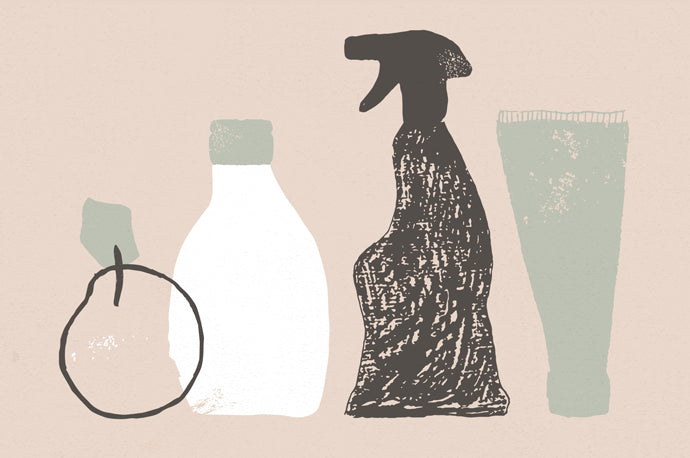
Endocrine disruptors - sneaky hormone imposters
Your body is extraordinarily sensitive. The food you eat, the packaging you use, the beauty care products you apply to your skin, and the cleaning products in your home can change how your body functions. The chemicals that change the way your body functions are called endocrine disruptors.
What is your endocrine system?
Your endocrine system is made up of hormones and the glands and organs which produce them. Almost everything in your body is governed by your endocrine system. Appetite, gut function, skin health, sleep, fertility and menstrual cycle, and metabolism is controlled by hormones.
How endocrine disruptors make a mess:
Endocrine disruptors are a particularly nasty sub-category of damaging synthetic chemicals humans are exposed to on a daily basis, as these chemicals are able to mimic some of your own hormones. This unregulated supply of external chemicals masquerading as natural hormones can have a detrimental effect on your health. The main problem is that the endocrine disruptors don’t work exactly like natural hormones and can mess up the regulation and production of your own natural hormones. Even if one hormone is affected, there can be a domino effect across the whole body.
The effects of endocrine disruptors are most commonly noticed as changes in sex hormone production. Women often experience symptoms of excess oestrogen (PMS, bloating, painful periods, headaches, weight gain and anxiety). Endocrine disruptors have also be associated with; higher levels of diabetes, breast and prostate cancer, lowered sperm count, obesity, and early puberty.
Where are endocrine disruptors found?
- Plastics containing bisphenol-A (BPA) - most plastic food packaging
- Parabens in skincare and hair products
- Antibacterial soaps
- Products treated with fire retardants - bedding, couches, and carpets
- Pesticides on food
- As part of the glue that holds mass produced tea bags together
For a thorough list please click here.
How to limit your exposure?
1. Never microwave food in any sort of plastic packaging. When plastics are heated chemicals become unbound and can easily transfer to your food. Keep hot food away from plastics, and always reheat food in glass or ceramic dishes, or on the stove top in a pot.
2. Avoid storing food in plastic contains and bags. Instead, opt for glass jars and containers. Changing your pantry storage into glass jars doesn't have to be a difficult process, simply start collecting used glass jars from the food you eat and look out in second-hand stores for glass containers.
3. Don’t buy water in plastic bottles! New Zealand is very lucky to have a great water supply, so make the most of it. Buy stainless steel or glass water bottles for your family and fill these from home. It’s a much cheaper and healthier way to be drinking water.
4. Choose natural cosmetics, skincare and home cleaning products. Use this website to check if your products are free from endocrine disruptors.
5. Eat real food! Eat as much of your food in its unprocessed and natural form to avoid any extra chemicals entering the food during unnecessary processing. Choose organic when possible, or at least spray free and be sure to wash your fresh fruit and veggies well.
6. Make the switch to the S+I tea in organic muslin tea bags. These tea bags are 100% free from nasty chemicals and are biodegradable too.
Words on Wellness by Jessica Gilijam-Brown
New Zealand based Holistic Nutritionist (BSc) @wellnessbyjessica

